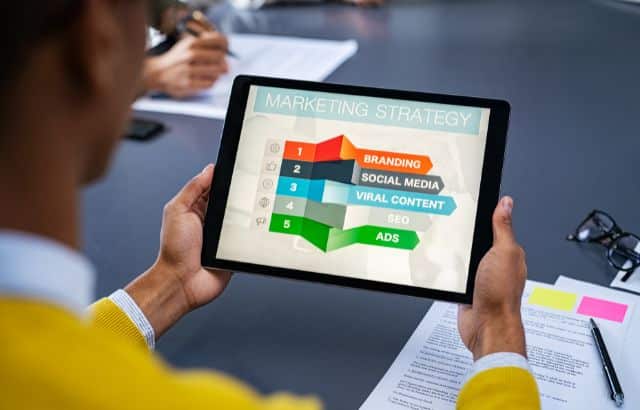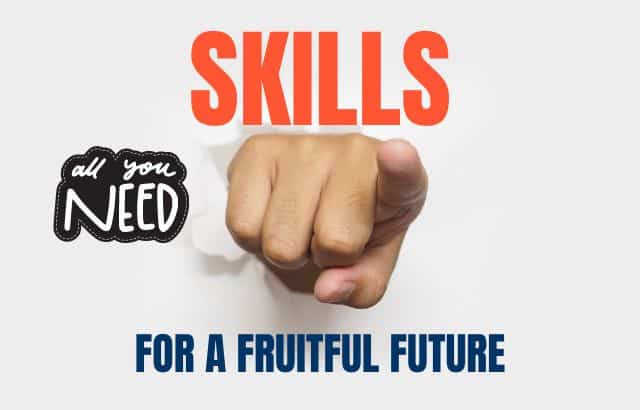In a rapidly evolving world, the skills that once defined success are transforming. The future promises both challenges and opportunities, making it crucial to develop competencies that will ensure a fruitful career and personal growth. Here’s a look at the essential future skills you need, with practical examples to help guide your development.
Table of Contents
Essential Future Skills for Success
1. Essential Future Skills- Adaptability: Embracing Change

Example: Imagine you’re working in a tech company and a new software tool is introduced. While some might resist learning this new tool, adaptable individuals view it as an opportunity. They quickly familiarize themselves with the software, attend training sessions, and integrate it into their daily tasks. This proactive approach not only keeps them relevant but also positions them as valuable team members who can handle transitions smoothly.
How to Develop Adaptability: Embrace new challenges, stay informed about industry trends, and remain open to feedback. Consider taking on different roles or projects that push you out of your comfort zone.
2. Essential Future Skills- Critical Thinking: Making Informed Decisions

Example: Picture a marketing team trying to choose between two different strategies for an upcoming campaign. A team member who excels in critical thinking will analyze data, evaluate potential outcomes, and consider the long-term implications of each strategy before making a recommendation. This analytical approach helps avoid costly mistakes and ensures a well-rounded decision.
How to Develop Critical Thinking: Practice questioning assumptions, analyze problems from multiple perspectives, and engage in debates or discussions that challenge your viewpoint.
3. Essential Future Skills-Digital Literacy: Navigating Technology

Example: Consider a financial analyst who needs to analyze large sets of data. Mastery of advanced spreadsheet functions, data visualization tools, and programming basics can significantly enhance their efficiency. A digitally literate professional can leverage these tools to generate insights, automate repetitive tasks, and present findings in a clear and compelling way.
How to Develop Digital Literacy: Take online courses on relevant software, stay updated with technological advancements, and apply new tools in real-life scenarios to build practical skills.
4. Essential Future Skills-Effective Communication: Building Connections

Example: In a global company, team members from different countries collaborate on projects. An employee with strong communication skills ensures that their messages are clear, concise, and culturally sensitive. This helps avoid misunderstandings, fosters teamwork, and enhances project outcomes.
How to Develop Effective Communication: Practice active listening, seek feedback on your communication style, and engage in public speaking or writing workshops to refine your skills.
5. Emotional Intelligence: Understanding Others

Example: Imagine a project manager navigating a conflict between team members. A high emotional intelligence allows the manager to empathize with each person’s perspective, address concerns effectively, and facilitate a resolution that satisfies all parties. This skill is crucial for maintaining a positive work environment and leading teams effectively.
How to Develop Emotional Intelligence: Reflect on your emotional responses, practice empathy in daily interactions, and engage in activities that improve self-awareness and interpersonal skills.
6. Problem-Solving: Innovating Solutions

Example: Suppose a startup faces a sudden drop in user engagement. A skilled problem-solver would gather and analyze user feedback, identify potential issues, and brainstorm creative solutions to address them. This approach not only helps in resolving the current problem but also paves the way for innovative improvements.
How to Develop Problem-Solving Skills: Approach problems with a systematic method, seek diverse perspectives, and experiment with different solutions to enhance your problem-solving abilities.
Hirav Shah’s Answers to essential skills for a fruitful future

What are essential skills for a fruitful future?
Answer: Essential skills include adaptability, critical thinking, digital literacy, and effective communication. These competencies are crucial for navigating future challenges.
How can I develop adaptability for future success?
Answer: Developing adaptability involves embracing change, staying open to new experiences, and continuously learning new skills. Practice flexibility in your approach to problems.
Why is digital literacy important for future careers?
Answer: Digital literacy is vital because it enables you to effectively use technology, analyze data, and stay competitive in a technology-driven job market.
What role does critical thinking play in future careers?
Answer: Critical thinking helps in making informed decisions, solving complex problems, and innovating. It’s a key skill for adapting to evolving industries and roles.
How can I improve my communication skills for future success?
Answer: Improving communication skills involves practicing active listening, engaging in clear and concise writing, and seeking feedback. Effective communication is essential for collaboration and leadership.
Top Strategies for Success According to Hirav Shah

1. “Fear of rejection is the barrier between where you are and where you want to be.”
Explanations: Fear of rejection often prevents individuals from taking necessary risks or pursuing new opportunities. This fear can trap you in your comfort zone, hindering personal and professional growth.
Strategy: To overcome this fear, shift your focus from potential negative outcomes to the opportunities that lie beyond rejection. Reframe rejection as a learning experience rather than a personal failure.
Execution: Take incremental steps outside your comfort zone. For instance, if you’re hesitant to pitch a new idea at work, start by sharing your ideas in smaller, informal settings to build confidence.
Example: An aspiring entrepreneur might fear rejection from investors. By practicing pitches with friends or mentors and gradually increasing the number of presentations, they can build resilience and refine their approach, ultimately improving their chances of success.
2. “Success is not final; failure is not fatal: It is the courage to continue that counts.”
Explanations: Success and failure are temporary states, but your willingness to persevere in the face of challenges determines long-term success. Recognizing this helps maintain motivation and resilience.
Strategy: Develop a mindset focused on continuous improvement and learning from both successes and failures. Emphasize persistence and adaptability in your approach to goals.
Execution: Set short-term and long-term goals, and regularly review your progress. After a setback, analyze what went wrong, adjust your strategy, and keep moving forward with renewed determination.
Example: A software developer who faces a failed project release uses the feedback to improve their coding skills and project management techniques. Their persistence leads to future successful projects and career growth.
3. “The only limit to our realization of tomorrow is our doubts of today.”
Explanations: Doubts and self-limiting beliefs can constrain your potential and prevent you from reaching future goals. Overcoming these doubts opens up new possibilities.
Strategy: Identify and challenge your self-doubts. Replace them with positive affirmations and set clear, actionable goals to build confidence and focus on achieving them.
Execution: Create a list of personal and professional doubts, and systematically address each with evidence of past successes and a plan for overcoming obstacles. Regularly review and adjust your goals to stay aligned with your vision.
Example: A writer who doubts their ability to publish a book starts by writing short stories and receiving feedback. As they gain confidence and experience, they gradually work toward completing and publishing their novel.
4. “Your life does not get better by chance, it gets better by change.”
Explanations: Improvement in life requires proactive changes rather than relying on luck. Taking deliberate actions to make positive changes leads to better outcomes.
Strategy: Identify areas in your life where change is needed and set specific, achievable goals for improvement. Develop a plan to implement these changes systematically.
Execution: Start by setting small, manageable goals that lead to broader improvements. For example, if you want to improve your health, begin with changes like a balanced diet and regular exercise, then gradually incorporate more comprehensive lifestyle changes.
Example: An individual looking to advance their career might take courses to develop new skills, network more actively, and seek mentorship. These changes lead to career advancement and increased job satisfaction.
5. “The best way to predict the future is to create it.”
Explanations: Rather than waiting for opportunities to come to you, actively shaping your future by setting goals and taking action is more effective in achieving desired outcomes.
Strategy: Define your vision for the future and create a strategic plan to reach it. Break down your vision into actionable steps and regularly review your progress.
Execution: Develop a detailed action plan that includes short-term milestones and long-term objectives. Adjust your plan as needed based on feedback and changing circumstances to stay on track.
Example: An aspiring tech entrepreneur develops a startup plan, including market research, product development, and marketing strategies. By executing this plan, they create their own opportunities and shape their business’s future success.
Conclusion
As we look toward the future, focusing on these essential skills—adaptability, critical thinking, digital literacy, effective communication, emotional intelligence, and problem-solving—will equip you to thrive in an ever-changing landscape. By integrating these competencies into your personal and professional life, you’ll be better prepared to seize opportunities and overcome challenges with confidence and resilience. Start today by setting goals in each of these areas and seeking out resources and experiences that will help you grow. Your future self will thank you.










